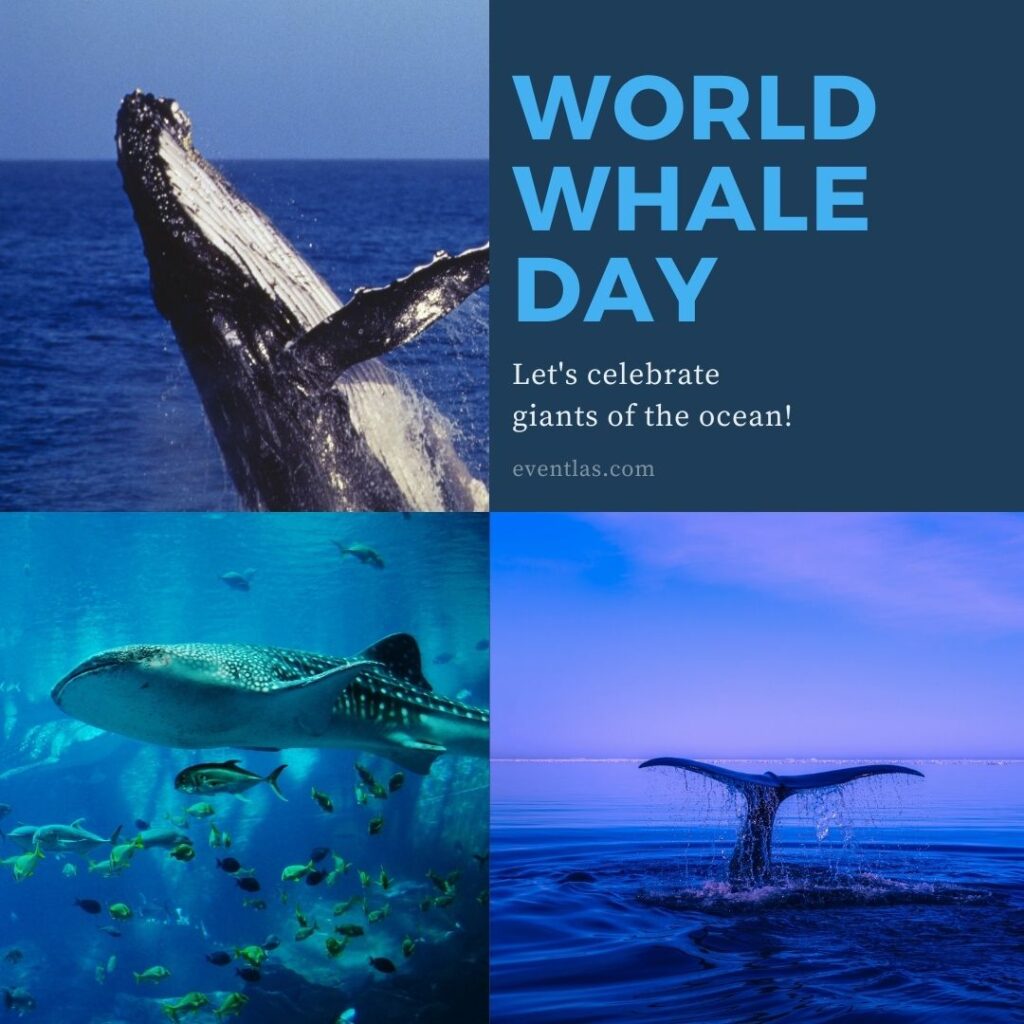World Whale Day is observed annually on the third Sunday in February. It is a wonderful opportunity to celebrate these magnificent aquatic mammals.
Unfortunately, there are some threats to the wellbeing of whales. Ship collisions are one of the leading causes of serious injuries and non-natural death for these cetaceans. Commercial whaling, entanglement in fishing gear, pollution, climate change, global warming, oil and gas development, toxic contamination, and habitat degradation are the main threats faced by whales. World Whale Day provides an opportunity to voice concerns regarding the wellbeing of these marine mammals.
World Whale Day will be celebrated on Sunday, February 16, 2025.

Interesting Facts About Whales
- Their weight ranges from 270 kg dwarf sperm whale to over 180,000 kg blue whale.
- Gray whales migrate over 10,000 miles a year.
- Sperm whales can hold their breath for up to 90 minutes.
- Humpback whales sometimes make fish-catching nets by blowing bubbles.
- Blue whales are the largest animals on Earth. A single adult is capable of consuming about 4 tons of krill a day.
- Blue whales have an average lifespan of 80 to 90 years in the wild.
- The snouts and backs of gray whales look like a crusty ocean rock. This is because they are often covered with parasites and other organisms.
Related Posts



